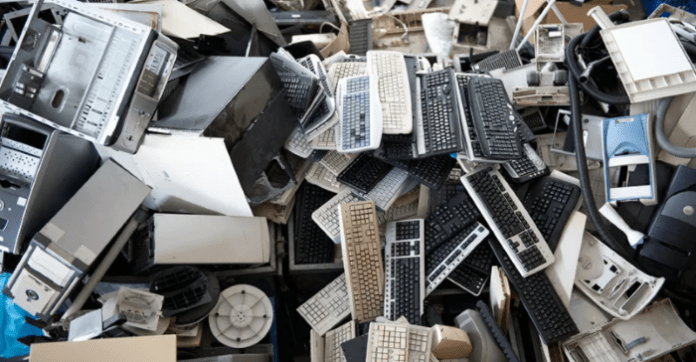Representatives at the S.C. General Assembly are working this week to extend a ban on dumping electronics at Solid Waste land fills. Sources inform MyrtleBeachSC News that local hotels dump thousands of these appliances annually.
A replacement bill on the ban is in the works. Per the legislation, the Department supports an extension of the Act to allow a group of diverse stakeholders to work together in the best interest of South Carolina to develop a replacement bill that is protective of the environment, promotes recovery of useful materials and provides an equitable distribution of responsibilities.
The state house hopes to pass the costs of disposing these items onto the manufacturer. The requirements of the Act expire on December 31, 2021, apart from the landfill ban on certain electronic devices. The expiration of the manufacturer take-back provisions of the Act is expected to increase the cost to local governments for their e-scrap recycling programs, as any cost sharing or manufacturer subsidies for recycling would cease. Current costs to local governments for management of electronic scrap is estimated to be more than $6 mil. annually.
The measure is being discussed in the General Assembly today and this week. An extension on the deadline of the ban bill is hoped for.
Electronics Overview
S.C. Code Section 48-60-05 et sec.
• The South Carolina Manufacturer Responsibility and Consumer Convenience Information Technology Equipment Collection and Recovery Act (Act), S.C. Code Section 48-60-05 et sec., became effective on July 1, 2011. A revision became effective on March 4, 2014. The statute expires on December 31, 2021, with the exception of Section 48-40-90, which establishes the landfill ban.
• The Department supports an extension of the Act to allow a group of diverse stakeholders to work together in the best interest of South Carolina to develop a replacement bill that is protective of the environment, promotes recovery of useful materials and provides an equitable distribution of responsibilities.
• The Act was passed in order to promote the recycling of electronic devices at the end of their useful life. Many electronic devices contain materials such as lead and mercury that can pose a hazard to human and environmental health if not properly managed. Electronics also contain valuable material such as gold, silver, copper, and other precious metals, that can be recovered through responsible recycling. Recycling these devices helps ensure that the valuable materials are recovered and reused, not disposed in landfills.
• In order to promote the recycling of electronic devices, the Act banned the landfill disposal of specific residential electronics, including desktop computers, laptop computers, printers, and televisions. The Act also added requirements and recovery obligations for manufacturers of electronic devices that sell such products in South Carolina. Additional requirements in the legislation specify standards for recycling these electronic devices.
• The requirements of the Act expire on December 31, 2021, apart from the landfill ban on certain electronic devices. The expiration of the manufacturer take-back provisions of the Act is expected to increase the cost to local governments for their e-scrap recycling programs, as any cost sharing or manufacturer subsidies for recycling would cease. Current costs to local governments for management of electronic scrap is estimated to be more than $6 mil. annually.
• In addition to increasing costs for local governments, the expiration of the statute would do away with manufacturer fees, which currently provide about $120,000 annually for implementation of the Department’s electronics recycling program.
• If the bill is allowed to sunset, the Department will lose regulatory oversight of electronics recyclers, including permitting authority, reporting requirements or financial assurance. Before the current law and regulation were passed, an unpermitted electronics recycler in South Carolina left a warehouse with thirty-two million pounds of unwanted scrap. That incident resulted in a $3 mil. cleanup by the property owner, who sued a number of local governments for cost recovery for their share of the material that was abandoned.
• The Department has invited a diverse group of stakeholders to discuss potential legislative alternatives and next steps to ensure electronics are managed in a way that is both environmentally and economically sustainable.
• A series of stakeholder meetings has been initiated, with representation by electronics manufacturers, local governments, electronics recyclers, environmental organizations, waste management companies and other interested parties. Discussion has ranged from concerns over allocation of the recycling costs, revisions to what qualifies as a “covered device”, environmental risks, requirements for recyclers, and the December 31 sunset deadline.


